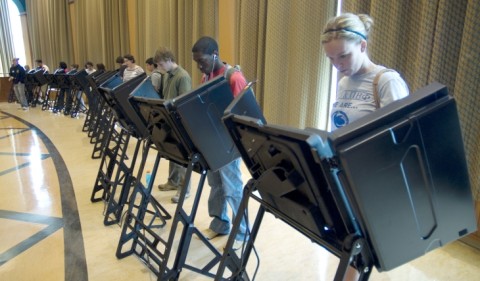
Congress Takes Action on Student ID Discrimination
Recently, U.S. Vote Foundation highlighted the uphill battle being fought by college students who have discovered that their university-issued identification cards and out-of-state driver’s licenses are not accepted at the polls in certain states. Congress has taken notice of these increasing claims of discrimination due to voter ID laws. Voter ID Bill HR 5144 was recently referred to the Committee on House Administration.
The Equal Access to Support Youth (EASY) Voting Act, would “amend the Help America Vote Act [HAVA] of 2002 to require States which require individuals to present a photo identification as a condition of voting in elections for Federal office to accept a photo identification presented by a student which is issued by the school the student attends.” Simply put, the bill would require state and local election officials to accept student photo ID as a current and valid photo ID in federal elections.
A positive sign is found on the Committee’s Website, which states, “During the 113th Congress, the Committee will examine issues related to elections and voting systems, including the adoption of [HAVA] provisions at the state level.” The bill is sponsored by Representative Emanuel Cleaver, II (D - Missouri), along with four co-sponsors, and would provide additional teeth to HAVA by making it a federal crime for any individual to purposely discourage a student from voting by providing false or misleading information.
Congressman Cleaver states that “Students should be encouraged to vote, not misled, confused, or outright barred from voting. At a time when voting rights have been restricted and constricted cross country, the EASY Voting Act is one way we can protect and promote political participation.” It is uncertain whether this bill will pass both houses of Congress in time to take effect in this November’s general election. US Vote will continue to bring you the updates on this and other breaking elections and voting legislation.